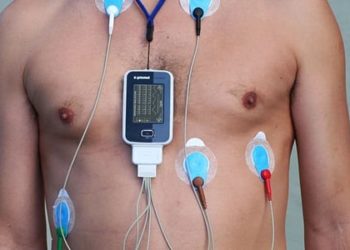Association between anticoagulation, bleeding, and subsequent cancer diagnoses
1. Gastrointestinal, genitourinary, or bronchopulmonary bleeding in anticoagulated patients with atrial fibrillation have been associated with higher rates of respective cancer diagnoses.
Evidence Rating Level: 2 (Good)
Recent registry data suggests that diagnoses of atrial fibrillation (AF) have been associated with higher incidence rates of cancer. Bleeding episodes in anticoagulated patients often unmask preexisting cancers, as oral anticoagulants (OACs) can be a “bleeding stress test”. Consequently, this retrospective cohort study explored whether these bleeding episodes should be an indicator to screen for occult cancer in AF patients on anticoagulation. A total 8 753 patients with AF from CardioCHUVI-AF (Retrospective Observational Registry of Patients with Atrial Fibrillation from Vigo’s Health Area) were analyzed, with a mean age of 82.7 years. 69.6% of patients were on Vitamin K antagonists and 30.4% on direct OACs (DOACs), and no patients had prior history of cancer; these patients were compared to non-anticoagulated patients (n= 1923). Over the 3-year follow-up, 24.8% of the anticoagulated patients experienced clinically relevant bleeding while 5.5% were diagnosed with cancer. 9.1% of patients with bleeds were subsequently diagnosed with cancer, which was 3-fold higher hazard than those without bleeding (adjusted HR 3.2, CI 2.6-3.9). Gastrointestinal, genitourinary, and bronchopulmonary bleeding were each associated with a 13-fold, 18-fold, and 15-fold higher hazard of new gastrointestinal, genitourinary, and bronchopulmonary cancer diagnoses respectively. On the other hand, bleeding in other places was associated with a lower cancer diagnosis rate (HR 2.3, 95% CI 1.5-3.6). While non-anticoagulated AF patients, of which 55.7% were prescribed antiplatelet therapy, the cumulative incidence of cancer was similar and bleeding events were also associated with an increased risk of subsequent cancer diagnosis (adjusted HR 1.8, 95% CI 1.1-29). However, a significantly higher percentage of patients were diagnosed with cancer after a bleeding episode in the anticoagulated group (41.3% vs 17.7%, p<0.0001). In terms of time of diagnosis after a bleeding event, 18.2% were diagnosed in the first month (29.5% after a major bleed), and 35.9% were diagnosed within 6 months after bleeding (61.5% after a major bleed). While this shows greater bleeding was associated with cancer, 60.6% of cancer diagnoses followed minor bleeding. These findings demonstrate that not only can evaluating bleeding lead to early detection of occult gastrointestinal, genitourinary, and bronchopulmonary cancers and often within 6 months of the event, this association strengthens with the severity of bleeding. Further studies should analyze characteristics of the cancers diagnosed such as staging and/or explore other possible risk factors.
Click to read the study in JAHA
Image: PD
©2020 2 Minute Medicine, Inc. All rights reserved. No works may be reproduced without expressed written consent from 2 Minute Medicine, Inc. Inquire about licensing here. No article should be construed as medical advice and is not intended as such by the authors or by 2 Minute Medicine, Inc.


![2 Minute Medicine: Pharma Roundup: Price Hikes, Breakthrough Approvals, Legal Showdowns, Biotech Expansion, and Europe’s Pricing Debate [May 12nd, 2025]](https://www.2minutemedicine.com/wp-content/uploads/2025/05/ChatGPT-Image-May-12-2025-at-10_22_23-AM-350x250.png)




